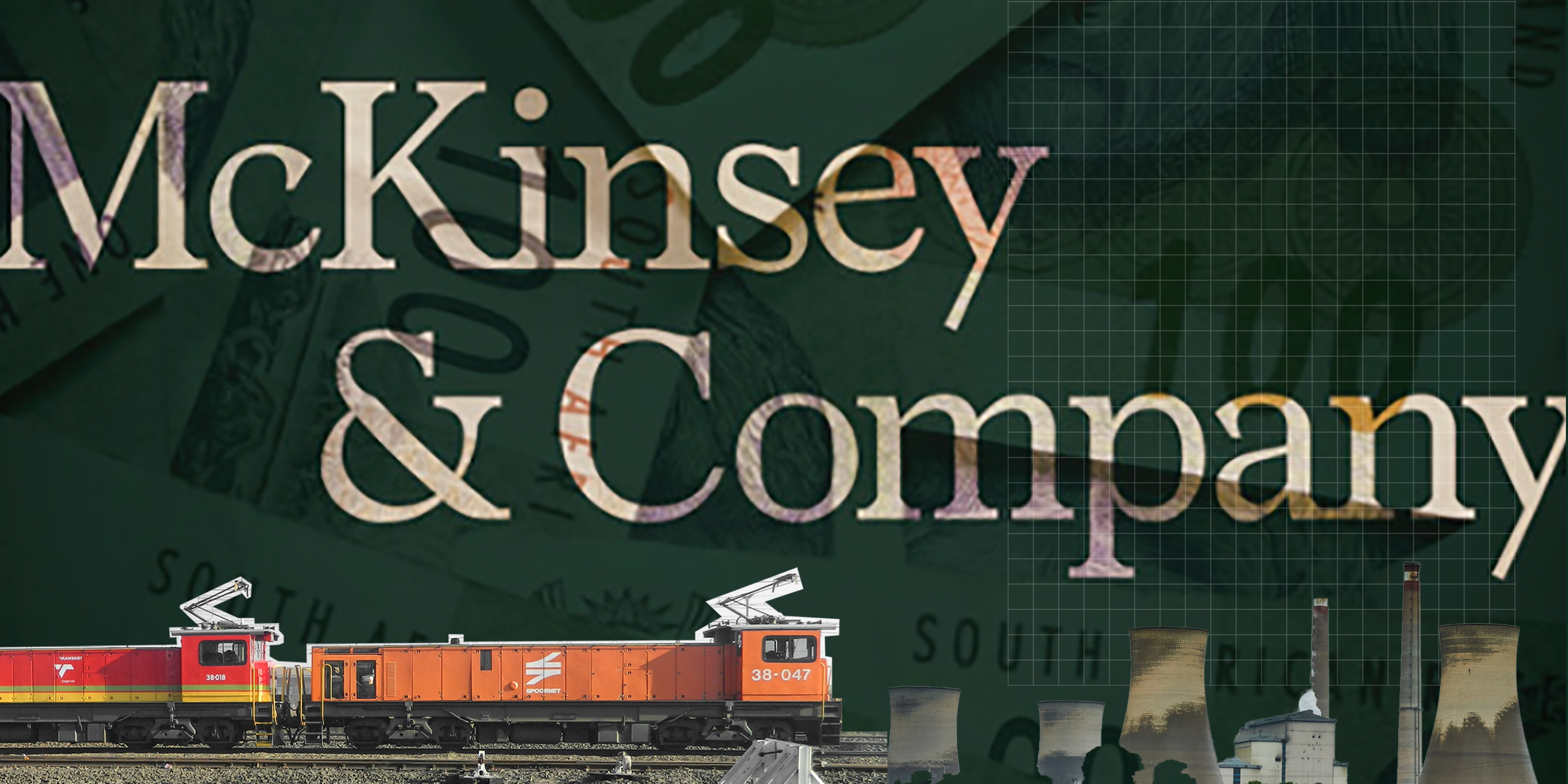Has the bar for a victory been lowered in South Africa regarding accountability and comeuppance for the key architects of State Capture corruption?
This question immediately came to my mind after consulting giant McKinsey entered into a $122.8-million “settlement” with the US Department of Justice and the National Prosecuting Authority (NPA) for being part of a bribery scheme to win contracts at Eskom and Transnet.
Many news and think pieces have described the McKinsey settlement as a “victory”. I’m afraid the bar for a victory is low. However, if we were to accept it as a “victory”, maybe it should be considered a pyrrhic victory — one that comes after so much damage and loss has occurred that it is no longer worth celebrating.
After all, the $122.8-million that McKinsey has to pay (equivalent to R2.2-billion at the time of writing, but the firm will only pay R1.1-billion to South Africa’s state) pales in comparison to the billions of rands that were fleeced from Eskom and Transnet, the key sites of State Capture.
With the help of McKinsey and others, R57-billion was milked from Eskom and Transnet through corrupt means from 2011 to 2016. The $122.8-million is also a slap on the wrist for McKinsey, considering it made a record $16-billion in group revenue last year.
McKinsey has laid all the blame on its former South Africa managing partner, Vikas Sagar, who the firm said was the mastermind behind a bribery scheme that paved the way for it to land lucrative contracts at Eskom and Transnet, and eke out $85-million in fees.
This disclosure by McKinsey does not go far enough as an accountability mechanism. It is unlikely that Sagar acted alone at McKinsey to engineer and accomplish the bribery scheme. State Capture was not run-of-the-mill corruption. It required a systemic repurposing of the state, and credible people at state-owned enterprises (SOEs) to be hounded out and replaced by pliable lackeys so that large contracts could be easily dished out. It also required the weakening of prosecutorial institutions so wrongdoers could never be prosecuted successfully.
In a recent media statement, McKinsey apologised and said it was “deeply remorseful that an employee of our firm engaged in corrupt conduct”.
If McKinsey wants to move on from this saga and reform its reputation, it has to come clean about the full gamut of its State Capture network and central players involved — inside and outside its operations.
McKinsey was also found on the wrong side of governance standards at South African Airways as it also did work at the state-owned airline during the State Capture era. And because its contract was tainted, McKinsey ended up repaying all fees paid to it — in that instance.
McKinsey is not the only global giant implicated in State Capture that has been economical with the truth and information. Bain, the US-based management consultancy firm, has still not disclosed the full extent of its role in restructuring the SA Revenue Service (SARS) and almost bringing a once world-class tax collection agency to its knees under former commissioner Tom Moyane during the State Capture era. Although Bain has paid back the fees and interest earned (R217-million) from its botched work at SARS, it still rejects (even today, despite damning evidence) that it was “wilfully or knowingly party to any effort to engage in State Capture”. I guess if Bain were to offer a mea culpa, it would open itself up to liability in the form of civil claims.
Without information, we are forced to connect the dots from information revealed by legal bodies in South Africa and the US.
Back to McKinsey, Transnet, Eskom and Sagar.
Sagar, who was fired by McKinsey seven years ago (details of his disciplinary by the firm have not been made public), pleaded guilty to US justice authorities on 16 December 2022. Details around this plea were only unsealed and made public last week in a 61-page document, which pieces together Sagar’s role in the McKinsey bribery scheme and supports the version of events contained in the State Capture Commission of Inquiry reports.
Sagar admitted that he cultivated a relationship with an unnamed Transnet board member from 2011, who had the “ability and authority to influence the award of consulting contracts”. During this period, Brian Molefe served as Transnet CEO, Anoj Singh was the CFO and Siyabonga Gama was the CEO of the freight rail division.
The cultivated relationship would later benefit McKinsey handsomely as it was awarded nearly 10 contracts with Transnet, and also subcontracted Gupta-linked Regiments and Trillian as empowerment partners. The roles of McKinsey, Regiments and Trillian were to advise Transnet on the purchase of 1,064 locomotives to upgrade its aging fleet — a contract that ballooned from R38.6-billion to about R54-billion.
Then in 2015, Molefe and Singh moved to Eskom where they held the roles of CEO and group treasurer, respectively. The State Capture Commission of Inquiry found that there was also “rampant corruption” linked to transactions between McKinsey and Regiments after Molefe and Singh moved to Eskom.
“In or around 2015, multiple Transnet executives who had worked with McKinsey Africa transitioned to leadership positions with Eskom... at Eskom, McKinsey’s bribery scheme proceeded in a similar manner as it had at Transnet,” reads the inquiry’s report.
Molefe, Singh, Gama, Sagar and others have been charged with fraud, corruption and money laundering. The real victory would involve everyone implicated in wrongdoing being successfully prosecuted. Anything less would be like praising a dog for barking.
Successful prosecutions would restore confidence in the NPA and South Africa’s justice system, which remains broken. The nation is hungry for accountability. DM
Business Maverick
After the Bell: McKinsey’s multimillion-dollar bribery case settlement a pyrrhic victory
Real victory would involve McKinsey coming clean about its full role in the State Capture project and everyone implicated being successfully prosecuted. Anything less would be like praising a dog for barking.





